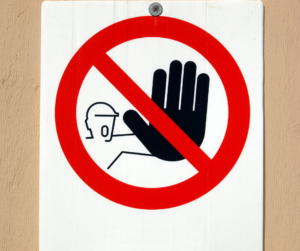 If you are like most people, you probably don’t think about choosing a primary care physician until there’s a problem. And by then, it may be too late. A good primary care physician is key to maintaining your health and preventing problems from developing. Did you know thought that it often starts with the person who answers the phone and the knowledge that they hold? In this blog post, we will discuss some things you should consider when choosing a PCP from the perspective of a previous secretary of 16 years, me.
If you are like most people, you probably don’t think about choosing a primary care physician until there’s a problem. And by then, it may be too late. A good primary care physician is key to maintaining your health and preventing problems from developing. Did you know thought that it often starts with the person who answers the phone and the knowledge that they hold? In this blog post, we will discuss some things you should consider when choosing a PCP from the perspective of a previous secretary of 16 years, me.
 Having sat in the seat of a medical secretary (AKA Administrative Assistant) or whatever they’re calling us these days, I figured it might be very helpful to many out there to hear about what I’ve seen in the trenches that could really benefit the world at large. For the sake of this article I’ll continue to use the title of Secretary when referring to the office scheduler or person who answers the phone for the provider. While our title is continually changing from Secretary to Administrative Assistant to Office Scheduler I feel that the title Secretary is most commonly recognized by the masses.
Having sat in the seat of a medical secretary (AKA Administrative Assistant) or whatever they’re calling us these days, I figured it might be very helpful to many out there to hear about what I’ve seen in the trenches that could really benefit the world at large. For the sake of this article I’ll continue to use the title of Secretary when referring to the office scheduler or person who answers the phone for the provider. While our title is continually changing from Secretary to Administrative Assistant to Office Scheduler I feel that the title Secretary is most commonly recognized by the masses.
 For 16 years (since 2001) I’ve worked in healthcare as a secretary and I’ve trained dozens to do the job. I’ve worked with numerous doctors ranging from Family Practice, Internal Medicine, Gynecology, Dermatology, Pediatrics, and Gastroenterology. I’ve seen both good and not so good physicians come and go. So when I sat down to write this article, I wanted others to be able to see the unseen and pull back the curtain for the world at large to give a behind the scenes peek at what I experienced.
For 16 years (since 2001) I’ve worked in healthcare as a secretary and I’ve trained dozens to do the job. I’ve worked with numerous doctors ranging from Family Practice, Internal Medicine, Gynecology, Dermatology, Pediatrics, and Gastroenterology. I’ve seen both good and not so good physicians come and go. So when I sat down to write this article, I wanted others to be able to see the unseen and pull back the curtain for the world at large to give a behind the scenes peek at what I experienced.
 Let’s start at the beginning when you first pick up the phone to make that call to a doctor’s office. This is after you’ve gone through your choices based on what you need and where the office you’ll have to go to is located. Oftentimes, you’ll call to make an appointment only to find out that the physician isn’t taking any new patients. If that’s the answer you get, don’t stop the conversation with the secretary so quickly. Ask her some questions. Ask when the physician stopped taking new patients. This answer will let you know how long the physician has been in practice. For instance, if the provider stopped taking new patients 10 years ago, then they likely have a very full practice. Consider asking how long the secretary has been with the provider? That answer will lend to how many years of experience she/he has. As this conversation of questions unfolds you’ll begin to build rapport with the secretary. Which is exactly what you want.
Let’s start at the beginning when you first pick up the phone to make that call to a doctor’s office. This is after you’ve gone through your choices based on what you need and where the office you’ll have to go to is located. Oftentimes, you’ll call to make an appointment only to find out that the physician isn’t taking any new patients. If that’s the answer you get, don’t stop the conversation with the secretary so quickly. Ask her some questions. Ask when the physician stopped taking new patients. This answer will let you know how long the physician has been in practice. For instance, if the provider stopped taking new patients 10 years ago, then they likely have a very full practice. Consider asking how long the secretary has been with the provider? That answer will lend to how many years of experience she/he has. As this conversation of questions unfolds you’ll begin to build rapport with the secretary. Which is exactly what you want.
 Getting to a good physician (who already has a full practice) often starts with the secretary. The secretary might even be the gatekeeper, or the person who has influence to the physician. Let them know what’s going on in your life. Tell your story. The details you relay might just make the difference in getting you through the door. Sometimes the empathy of the person on the other end of the phone can influence the provider into taking on just one more patient. Especially if you mention a friend you know or someone who is already an existing patient to the provider, name drop if you can! The relationship might just get you in the door. If she/he likes you AND thinks you’ll be a good fit, then they will make sure that the physician hears about you. It’s not a guarantee, but it can help.
Getting to a good physician (who already has a full practice) often starts with the secretary. The secretary might even be the gatekeeper, or the person who has influence to the physician. Let them know what’s going on in your life. Tell your story. The details you relay might just make the difference in getting you through the door. Sometimes the empathy of the person on the other end of the phone can influence the provider into taking on just one more patient. Especially if you mention a friend you know or someone who is already an existing patient to the provider, name drop if you can! The relationship might just get you in the door. If she/he likes you AND thinks you’ll be a good fit, then they will make sure that the physician hears about you. It’s not a guarantee, but it can help.
 Secretaries are familiar with the provider, how the provider works, their demeanor, and most likely also what the answer will be if it’s regarding taking on a new patient. Secretaries also have a lot of insight as to what’s going on in the community because they hear this question (Is the doctor taking new patients?) so often. They ask around to the other secretaries that they talk to on a regular basis about who IS taking new patients, as well as friends and family. It’s like they have a radar on the good and bad of the medical community at large. Whenever I heard about a really good physician, as a secretary, I took note of it and got more information, so that when I was back at my job I had valuable information to offer people that call me. I was just as disappointed in telling someone that I wasn’t able to help them, so I began to make myself more valuable and provide options or a path when I had to say no. If you find that the provider you want is not taking new patients you can always ask if the provider would “consider” taking one more patient when you’re on the phone. After asking, provide some of your story so that it can be relayed to the provider. A story can help bring about empathy and understanding.
Secretaries are familiar with the provider, how the provider works, their demeanor, and most likely also what the answer will be if it’s regarding taking on a new patient. Secretaries also have a lot of insight as to what’s going on in the community because they hear this question (Is the doctor taking new patients?) so often. They ask around to the other secretaries that they talk to on a regular basis about who IS taking new patients, as well as friends and family. It’s like they have a radar on the good and bad of the medical community at large. Whenever I heard about a really good physician, as a secretary, I took note of it and got more information, so that when I was back at my job I had valuable information to offer people that call me. I was just as disappointed in telling someone that I wasn’t able to help them, so I began to make myself more valuable and provide options or a path when I had to say no. If you find that the provider you want is not taking new patients you can always ask if the provider would “consider” taking one more patient when you’re on the phone. After asking, provide some of your story so that it can be relayed to the provider. A story can help bring about empathy and understanding.
 Remember that often the secretary is making sure your appointment is scheduled correctly, whether it be for a physical or sick visit, and that all the appropriate paperwork is completed. Aside from answering the phone a secretary has to be able to do referrals to other providers, scan (stacks and stacks) of paperwork for both your electronic chart and every other patients, submit for authorizations for imaging studies like x-ray’s, CT (cat scans) and MRI’s, among other tests, mail out paperwork, open mail, coordinate both the doctors schedule and the clinical staff, in short, they’re often very busy. So one essential tool every secretary must possess is the ability to type fast. While this might seem like a common sense skill set, this ONE thing has the ability to crush a secretary working in a high call volume, fast paced environment. I’ve seen the feelings of being overwhelmed take over when training staff that just can’t keep up, all because they can’t type fast and accurately. When a secretary does not possess this ability it is often a downfall.
Remember that often the secretary is making sure your appointment is scheduled correctly, whether it be for a physical or sick visit, and that all the appropriate paperwork is completed. Aside from answering the phone a secretary has to be able to do referrals to other providers, scan (stacks and stacks) of paperwork for both your electronic chart and every other patients, submit for authorizations for imaging studies like x-ray’s, CT (cat scans) and MRI’s, among other tests, mail out paperwork, open mail, coordinate both the doctors schedule and the clinical staff, in short, they’re often very busy. So one essential tool every secretary must possess is the ability to type fast. While this might seem like a common sense skill set, this ONE thing has the ability to crush a secretary working in a high call volume, fast paced environment. I’ve seen the feelings of being overwhelmed take over when training staff that just can’t keep up, all because they can’t type fast and accurately. When a secretary does not possess this ability it is often a downfall.
 Another important consideration is the physician’s bedside manner. You want someone who makes you feel comfortable, listened to, and respected. Unfortunately, not all physicians have a good bedside manner. I’ve seen patients who have been with the same doctor for years and they still seem scared or intimidated by them. On the other hand, I’ve seen patients who have just started seeing a new doctor and they already love them. It really varies from person to person. Mind you, every person is different and I’ve warned patients about providers when they’re not warm and inviting but emphasize that they are very good at what they do. Just giving the patient that information helps them when they’re in the room with the doctor. It sets the expectation. Some men don’t care as much about bedside manner when the provider is amazing at what they do, they’d almost prefer the latter. It just varies from person to person. In the end, if you don’t feel comfortable with your physician, it is ok to switch. In fact, I would encourage it. Your health is too important to entrust to someone you don’t feel comfortable with.
Another important consideration is the physician’s bedside manner. You want someone who makes you feel comfortable, listened to, and respected. Unfortunately, not all physicians have a good bedside manner. I’ve seen patients who have been with the same doctor for years and they still seem scared or intimidated by them. On the other hand, I’ve seen patients who have just started seeing a new doctor and they already love them. It really varies from person to person. Mind you, every person is different and I’ve warned patients about providers when they’re not warm and inviting but emphasize that they are very good at what they do. Just giving the patient that information helps them when they’re in the room with the doctor. It sets the expectation. Some men don’t care as much about bedside manner when the provider is amazing at what they do, they’d almost prefer the latter. It just varies from person to person. In the end, if you don’t feel comfortable with your physician, it is ok to switch. In fact, I would encourage it. Your health is too important to entrust to someone you don’t feel comfortable with.
When you go to the appointment, be sure to bring a list of your concerns. This way, you can make sure that all of your questions are answered and that you understand what the doctor is saying.  It’s also a good idea to bring someone with you to the appointment. By bringing someone with you they can help you remember what was said and ask questions that you may not have thought of. If you have a list of things to discus then be sure to let the secretary know so that she can provide a longer appointment. Depending on the physician, appointments range from 10 min acute appointments for sore throat, ear infection, upper respiratory infection, bronchitis and all the way up to 20, 30, and 40 minutes for physicals, comprehensive health assessments (CHA’s), school sport physicals, or addressing multiple issues and complex concerns. Having the necessary time with a provider helps everyone to not feel rushed and respectful of the time.
It’s also a good idea to bring someone with you to the appointment. By bringing someone with you they can help you remember what was said and ask questions that you may not have thought of. If you have a list of things to discus then be sure to let the secretary know so that she can provide a longer appointment. Depending on the physician, appointments range from 10 min acute appointments for sore throat, ear infection, upper respiratory infection, bronchitis and all the way up to 20, 30, and 40 minutes for physicals, comprehensive health assessments (CHA’s), school sport physicals, or addressing multiple issues and complex concerns. Having the necessary time with a provider helps everyone to not feel rushed and respectful of the time.
When choosing a provider, I can tell you that if the person answering the phone is often on edge, then it could be an indicator of the team not working well together or the provider being difficult  to work with, so pay attention. Make sure they have good office staff, from the front at check in, to the person who answers the phone, and all the way to the back at discharge when you’re about to leave the office and the clinical staff is walking you up to the secretaries desk. They all work together every single day and most become a work family. It’s important that they all get along and that you can see that when they’re caring for you as a team. It’s vital that everyone gets along well and works together as a team for top efficiency. I understand that we all have bad days and that’s not what I’m talking about. Consider that the disposition of the secretary might have a lot to do with the team that she’s a part of. If (though not always) the doctor has a good professional bedside manner, and gets the workload done, then the secretary will often be in a good mood to begin with. This is just something to consider, it’s not always the case.
to work with, so pay attention. Make sure they have good office staff, from the front at check in, to the person who answers the phone, and all the way to the back at discharge when you’re about to leave the office and the clinical staff is walking you up to the secretaries desk. They all work together every single day and most become a work family. It’s important that they all get along and that you can see that when they’re caring for you as a team. It’s vital that everyone gets along well and works together as a team for top efficiency. I understand that we all have bad days and that’s not what I’m talking about. Consider that the disposition of the secretary might have a lot to do with the team that she’s a part of. If (though not always) the doctor has a good professional bedside manner, and gets the workload done, then the secretary will often be in a good mood to begin with. This is just something to consider, it’s not always the case.
Let’s replay the scenario when patients will call, and they’re angry about something that’s happened to them at the doctor’s office or they didn’t like how they were treated and they want to speak  with the doctor. If you find yourself in this situation, here’s a tip. First of all, try to remain calm. It’s difficult to have a constructive conversation when you’re angry. If you’re unable to speak with the doctor at that time, ask to schedule an appointment so that you can discuss your concerns in person. This will give you time to calm down and it will also give the doctor time to look over your chart before meeting with you. I can’t tell you how many times a patient insists on speaking to the doctor and because of their very busy schedule, unless it’s an emergency, they can’t just get on the phone to talk to you or come out to the lobby to talk to you. Most of the time, after one appointment, they’re right into the next door seeing another patient. Plus, when you insist on speaking to the physician without an appointment, there’s no telling how long the conversation will go on for. Often, what is meant to be a 5 minute conversation ends up taking much longer and the physician ends up asking the patient to come into the office anyway or make another appointment, because they need to SEE something first hand and do a deep dive with more questions. We’ve come a long way in technology with Zoom meetings but sometimes, oftentimes in fact, it’s just better to be seen IN PERSON to handle things.
with the doctor. If you find yourself in this situation, here’s a tip. First of all, try to remain calm. It’s difficult to have a constructive conversation when you’re angry. If you’re unable to speak with the doctor at that time, ask to schedule an appointment so that you can discuss your concerns in person. This will give you time to calm down and it will also give the doctor time to look over your chart before meeting with you. I can’t tell you how many times a patient insists on speaking to the doctor and because of their very busy schedule, unless it’s an emergency, they can’t just get on the phone to talk to you or come out to the lobby to talk to you. Most of the time, after one appointment, they’re right into the next door seeing another patient. Plus, when you insist on speaking to the physician without an appointment, there’s no telling how long the conversation will go on for. Often, what is meant to be a 5 minute conversation ends up taking much longer and the physician ends up asking the patient to come into the office anyway or make another appointment, because they need to SEE something first hand and do a deep dive with more questions. We’ve come a long way in technology with Zoom meetings but sometimes, oftentimes in fact, it’s just better to be seen IN PERSON to handle things.
In closing, remember that when you call your physician’s office with questions, concerns, and needs, the person who answers the phone will be a vital asset in helping you get the quality care you deserve and need. It’s essential that they have an ability to communicate effectively on your behalf. Throughout the years I’ve seen and worked with clinical staff in many different offices with people that love their jobs. I’ve also worked in other office environments with staff who are unhappy and selfish. When the staff is amazing, it shows in every part of your visit. They, as a team, are all responsible for different parts of your visit.  Many parts on one healthcare body, so to speak. I hope that this information provides you with insight into helping you work with your provider, their office, and their staff in a way that provides tools and understanding to you. I hope that this provided some clarity for you in your search for the best primary care provider. If you have any questions, please feel free to reach out. Thank you for reading!
Many parts on one healthcare body, so to speak. I hope that this information provides you with insight into helping you work with your provider, their office, and their staff in a way that provides tools and understanding to you. I hope that this provided some clarity for you in your search for the best primary care provider. If you have any questions, please feel free to reach out. Thank you for reading!
